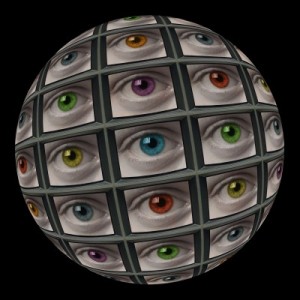Tracking vs stalking: when do you overstep the line?

Although it seems like it’s been around forever and life would be unimaginable without it, the Internet is young. From the first inkling of the idea (possibly in 1962, when J.C.R. Licklider of MIT in August 1962 wrote a series of memos outlining a “Galactic Network”) and its commercial and general public “birth” about 20 years ago, its growth and impact since then has been massive. And we are still learning out how to live with the new world it has created. One way of thinking about it is to realise that we have invented a parallel world to our familiar material world of people and things, places and distances.
The key characteristic of the Internet is that it is a virtual world, in which everything is intangible, as compared with our more familiar tangible world. As a species we have had a long time, hundreds of thousands of years, to learn to live in our tangible world, and in particular, to learn to live with one another in that tangible world. We have gradually worked out rules which make life in the tangible world possible and pleasant: rules of politeness, of privacy, of boundaries and personal space, of sharing and of ownership. It is clear that we are still struggling to work out the rules that we need to govern our new, intangible Internet world. And it appears that that key characteristic of intangibility may confuse and mislead us as to what is and isn’t acceptable.
In our old, real world we know that “stalking” is problematic: physically watching, following and paying obsessive attention to another person is seen as harassment and as intimidating. In many/most countries it is a criminal offence. For instance in England and Wales, the Protection from Harassment Act (1997) makes stalking a criminal offence, punishable by up to six months imprisonment. The court can also issue a restraining order, and if that is subsequently breached that carries a maximum punishment of five years imprisonment. This law makes sense to most people: having another person following you around, watching you, recording what you are doing, who you meet, what you talk about: we know that that doesn’t feel right and that we need to protect ourselves, and we need to be able to prevent other people from doing this. We can also run the thought experiment that tells us that if that stalker employed teams of people to do their stalking for them, and to report daily to them on our activities that this would somehow have taken that crime to another level. And it is clear that if we were subject to the attentions of not just one stalker, but lots of stalkers, then we would be right in feeling mightily persecuted and violated, and would seek help to protect ourselves from this mass of stalking activity.
As we become more aware of what is happening in the intangible world of the Internet, it is clear that each and every one of us is being stalked. Leaving to one side the revelations about the US’s PRISM program run by their NSA, and the UK’s Tempora program run by GCHQ, the giants of the Internet such as Google, Facebook, Microsoft and Apple are engaged in stalking on a massive scale. They may use a plethora of other names to try to sanitise their activities (cookies, tracking, metadata, etc.) but in practice they are stalking each and every person who uses their services: they are watching, tracking and recording what we do, who we communicate with and what we talk about. In short they are paying obsessive and continuing attention to what we do.
Why is it that we are rightly hostile to such behaviours in the real world, but, to date at least, remarkably sanguine about such behaviours when they happen on the Internet? The key seems to lie with the intangible, virtual nature of the Internet world. In the virtual world we are, or have been, largely unaware of how closely and obsessively we are being stalked, and may have thought that the behaviours that are being watched and recorded are in some way “not really real” and therefore not really important. As we come to realise that what we say to our friends and family on Facebook is just as real and consequential as what we say to them in our kitchen, living room or bedroom then our relaxed attitudes to being stalked should, will and must change: what is wrong in our tangible world is just as wrong in the new, intangible world of the Internet.













